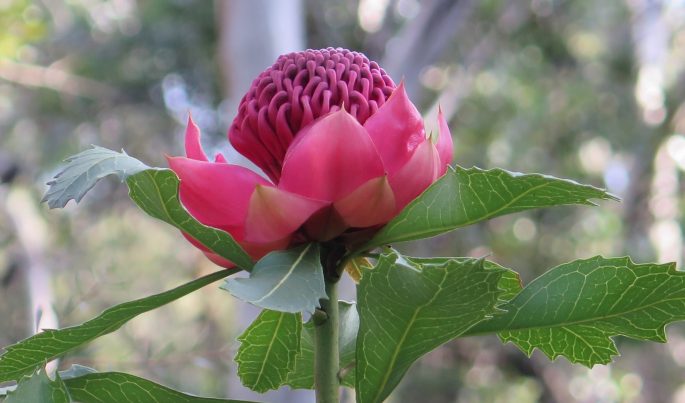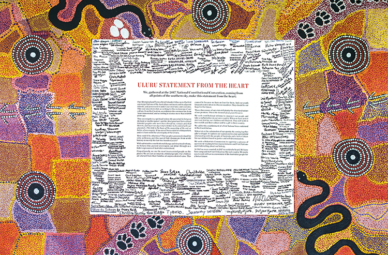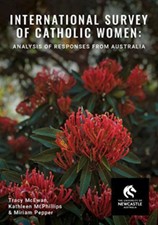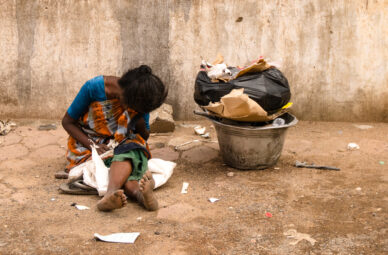
The Season of Creation
August 31, 2021The Season of Creation is, understandably, a time that is most commonly celebrated by focusing on the integrity and beauty of the natural world, so that we may fall in love or fall in love again, experiencing the awe and wonder that are necessary for our ongoing passion to care for creation. Really seeing, listening deeply, feeling in communion with, are all ways of expressing in words what we try to do in this time of reconnection with the works of the Creator.
The current lockdown in Sydney will limit the extent of our walks in nature, but may, on the other hand, give us more time than usual to explore some small part of nature in great detail – a tree in the streetscape, a pot plant on a balcony, the birdsong we hear, our familiar pet. Extended lockdown could be considered a gift by those of us privileged enough to be free of material cares. It has certainly brought home to us a question that lies at the heart of Pope Francis’ encyclical on care for our common home: what is a good life? What do we really need for happiness?
in Laudato Si’ Pope Francis tell us: “Christian spirituality proposes an alternative understanding of the quality of life, and encourages a prophetic and contemplative lifestyle, one capable of deep enjoyment free of the obsession with consumption.” (222) It seems to me that a lockdown during the season of Creation is the perfect time to contemplate an alternative understanding of the quality of life, at a time when we are all keenly aware of what we lack. It is also a good time to question our obsession with consumption and seek ways to live the simpler (but much richer) lifestyle that Pope Francis advocates. When we understand just how much our obsessive consumption is destroying the planet, we realize that exploring ways to combat this is also a very appropriate way of celebrating the Season of Creation.
I have been thinking a lot lately of Gandhi’s spinning wheel – a richly layered symbol of a simple life, a contemplative space, non violence, working at one’s own pace, but most of all, of resistance to British imperial colonial culture and rule. For Gandhi, to spin, as he often did, was to make a political statement. He urged all Indians to spin and weave so as to make themselves independent of English manufactured goods. It was, in effect, a boycott of consumption, for the sake not only of national sovereignty, but for the survival of India’s impoverished masses. Gandhi remains for me a truly prophetic figure.
How, in our own time and place, can we effectively boycott consumption, so that it will make a difference to the survival of both the earth and the poor? It’s a question I offer you as a humble gift for this year’s Season of Creation.
Patricia Gemmell
Patricia has a Masters in Theology, is a member of the Australian Grail National Leadership Team and has been a parishioner of St Leonard's Naremburn for 34 years.










